Victor DE MARTELAERE
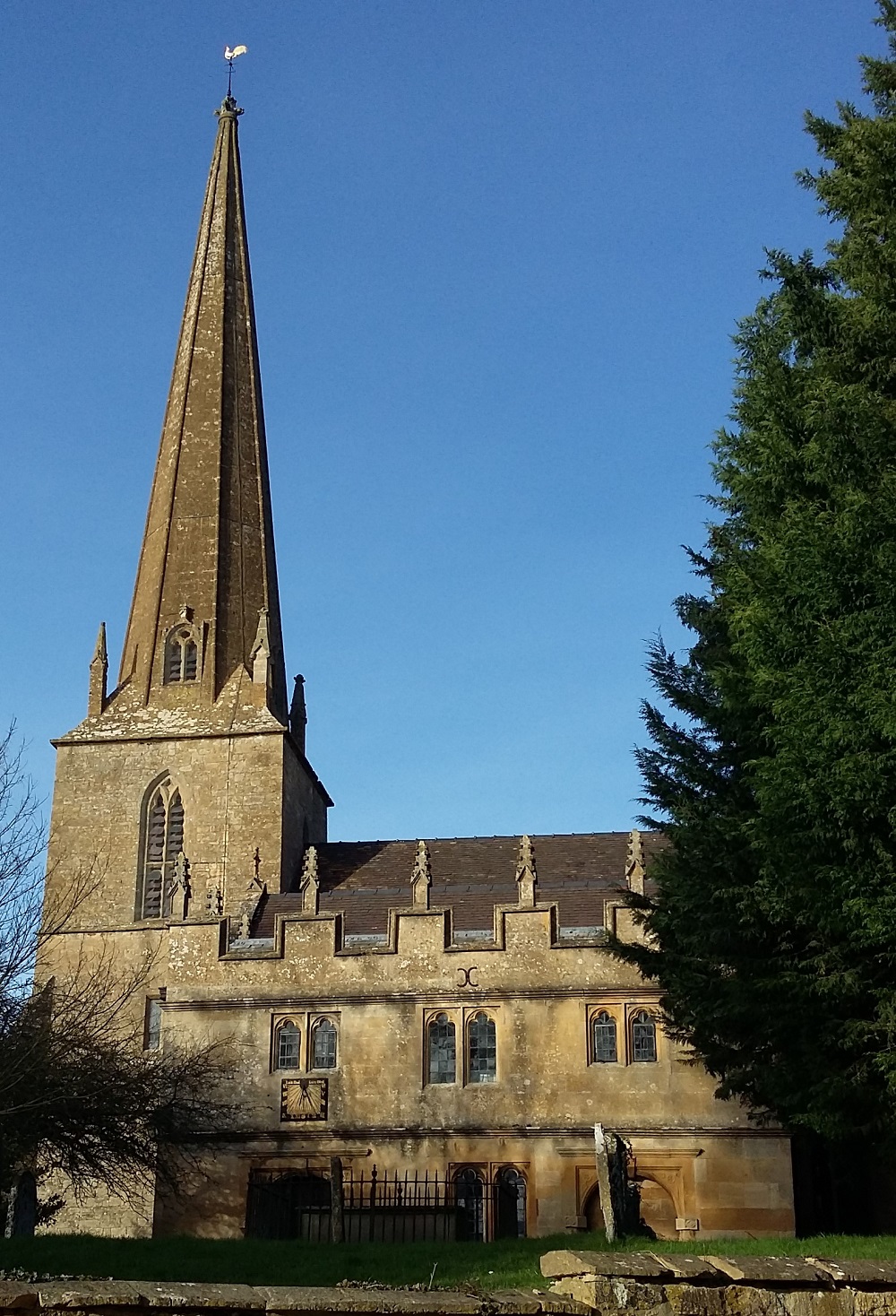
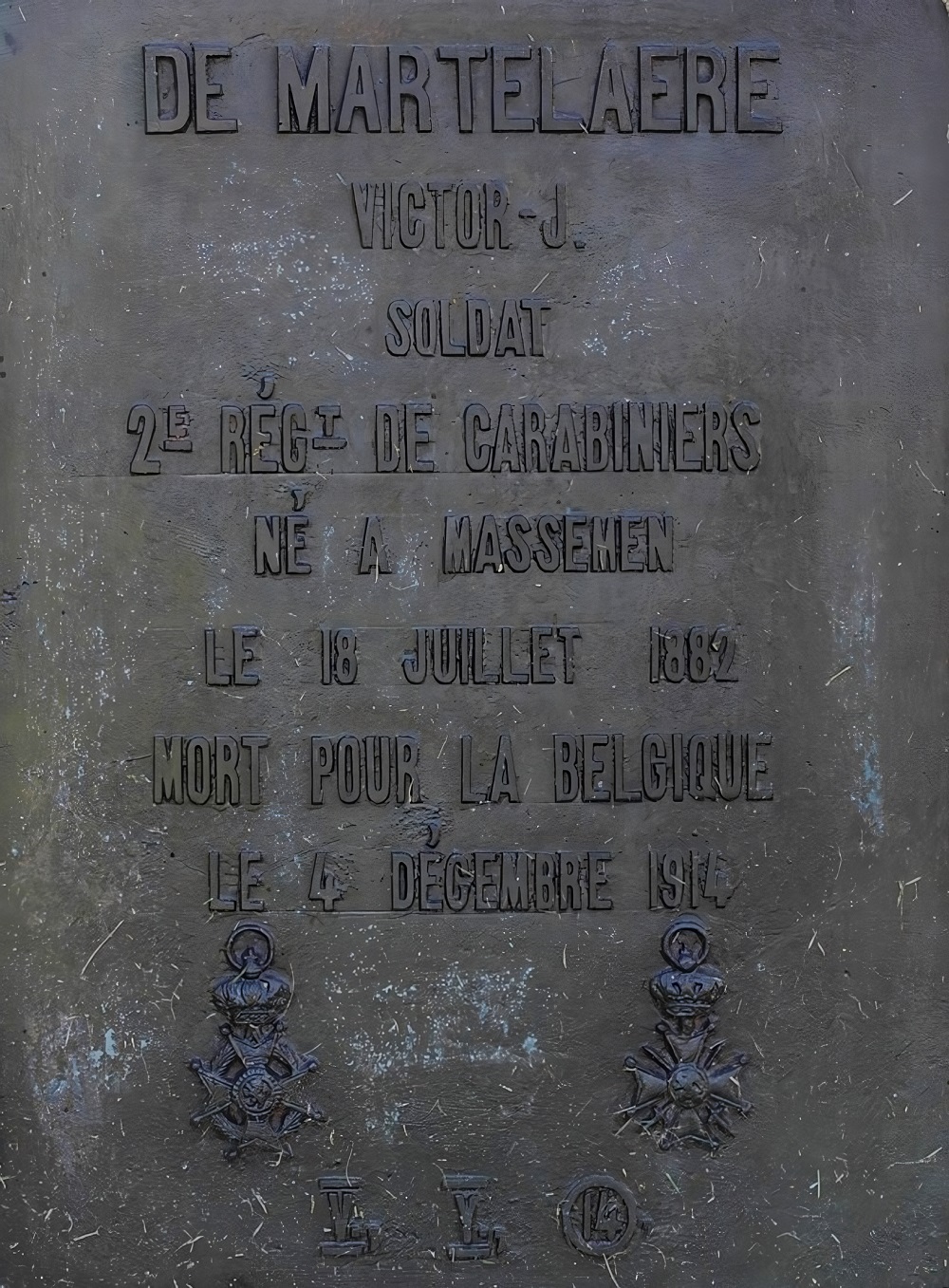
St Lawrence's Churchyard
Sources - Bronnen :
[183]; [733]; "Military
images"
Victor-Joseph De Martelaere
Biography 1
Why a WW1 Belgian soldier is buried in Mickleton churchyard
By Linda Phelpstead
In a corner of Mickleton's secluded, peaceful churchyard one
particular headstone stands out from all the others. Decorated with
a circular disc enamelled in vibrant stripes of his nation's colours
of black, yellow and red, surmounted by a rampant lion, it marks the
last resting place of a Belgian soldier who fought for his country
against the Germans in WW1 but who died a long way from his home and
family. The inscription on the plaque attached to the gravestone
reads:
DE MARTELAERE
VICTOR-J.
SOLDAT
2nd REGT DE CARABINIERS
NÉ À MASSEMEN
LE 18 JUILLET 1882
MORT POUR LA BELGIQUE
LE 4 DÉCEMBRE 1914
His early life
Victor-Joseph DE MARTELAERE, son of August, an innkeeper, and Marie
DE MARTELAERE, was born on 18th July 1882 in Massemen, near Ghent in
Belgium. He was married to Angèle VERSCHELLE but they had no
children. He was conscripted into the militia in 1902, transferred
to the reserve in 1910 and then on 1st August 1914 he was mobilized
into the 2nd Regiment of Carabiniers, part of the 6th Division of
the Belgian Army. On 4th August the German Army crossed the frontier
into Belgium. Unable to withstand the larger, better equipped forces
advancing against them, by the end of September the Belgian Army was
forced back behind the Antwerp defences. Although the exact date and
place is unknown, it was around this time that Victor-Joseph
received a gunshot through a lung and on 4th October he was one of
many wounded soldiers and civilians evacuated from Antwerp to
England.
Victor-Joseph arrives in Mickleton
Victor-Joseph was initially sent to a hospital in Birmingham and
then, along with 16 other wounded Belgian soldiers, transferred to
the Voluntary Aid Deatachment [V.A.D] Hospital at Norton Hall,
Mickleton. Norton Hall is a country house situated on the outskirts
of the village that at that time was owned by Samuel BRUCE, an Irish
business man who owned a distillery in Co. Down. Along with many
others, he had offered to lend his house to the British Government
for use as a hospital. His daughter, Miss Maye BRUCE, lived in the
house, supervised its conversion to a hospital and became its
Commandant. It opened for patients on 11th November 1914, the same
day as Victor-Joseph and his fellow wounded countrymen arrived at
Honeybourne Station. They were met from the train by Miss Bruce,
members of Mickleton Ambulance Corps, Dr Johnson of Mickleton, two
Belgian schoolmasters from Broadway and Father Clacs, a priest from
Chipping Campden.
His funeral
Victor-Joseph died on 4th December 1914 of a cerebral embolism
caused by the serious wounds he had received. He was buried with
full military honours in St Lawrence's churchyard on 7th December.
His coffin was draped with the Belgian flag, wreaths were sent by
the Red Cross and others and his wounded comrades, accompanied by
Miss BRUCE and nurses, followed the coffin to the graveside. Father
BILBERROW, from Campden, said the Office for the Dead and Father
CLAES gave the oration in French. Two buglers, using instruments
borrowed from Mickleton Boy Scouts, sounded the "Last Post". The
firing party was made up of wounded British soldiers commanded by a
sergeant from the Dublin Fusiliers.
Attempt at repatriation
Perhaps the most poignant part of this story is that in 1923
Victor-Joseph's wife, Angèle, with the help of the Mayor of
Gognies-Chaussée (France) where she was then living, appealed to the
Belgian authorities to ask if his remains could be repatriated. She
was informed that the period of time that state aid was available
for cases such as this had expired. Sadly, she was unable to pay the
cost herself and so her husband's remains still lie in our small
Cotswold churchyard. Every November he, along with the men from
Mickleton who fought and died in the same war, is remembered and
honoured.
Source: "Mickleton
Community Archive"
Biography 2

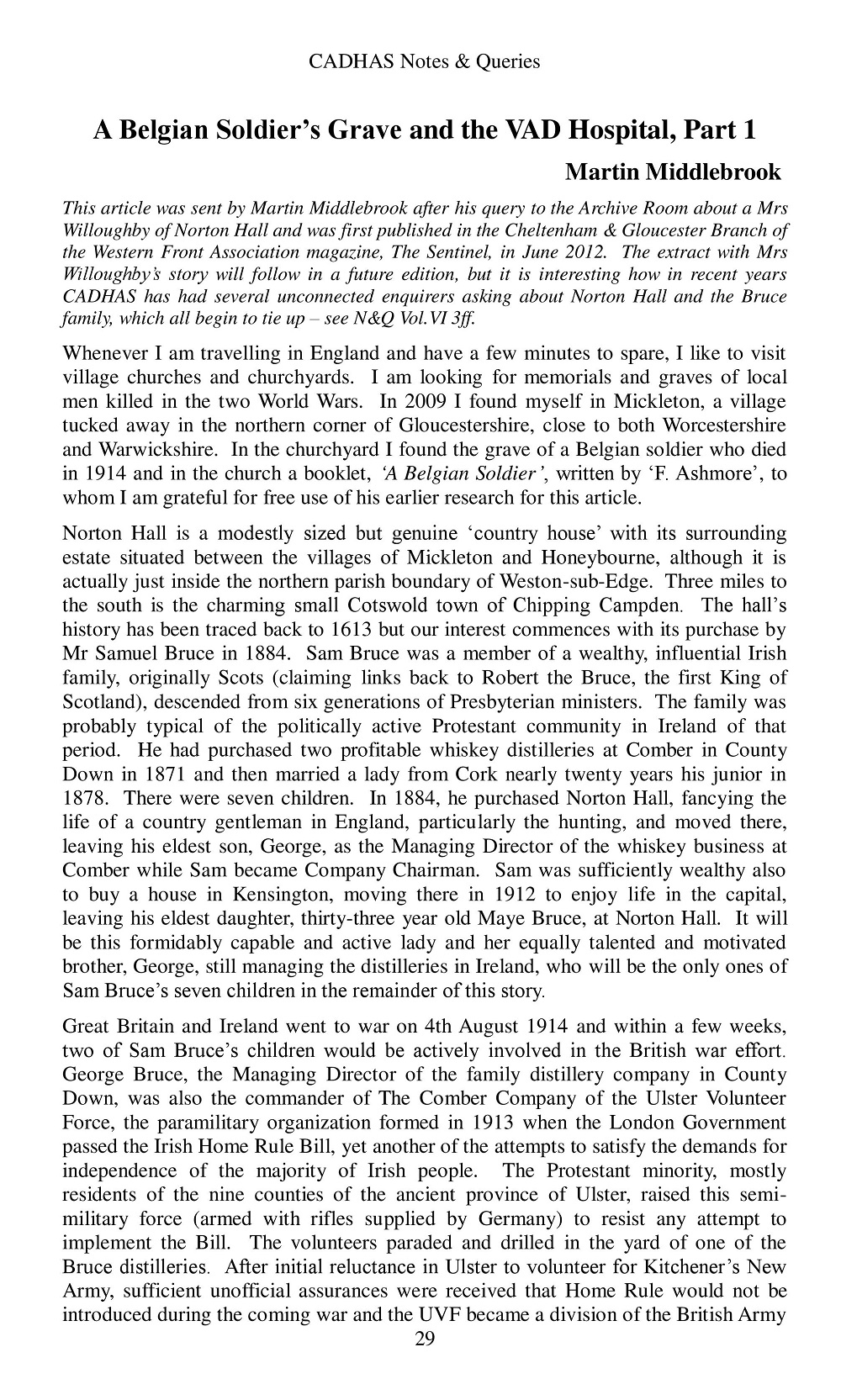
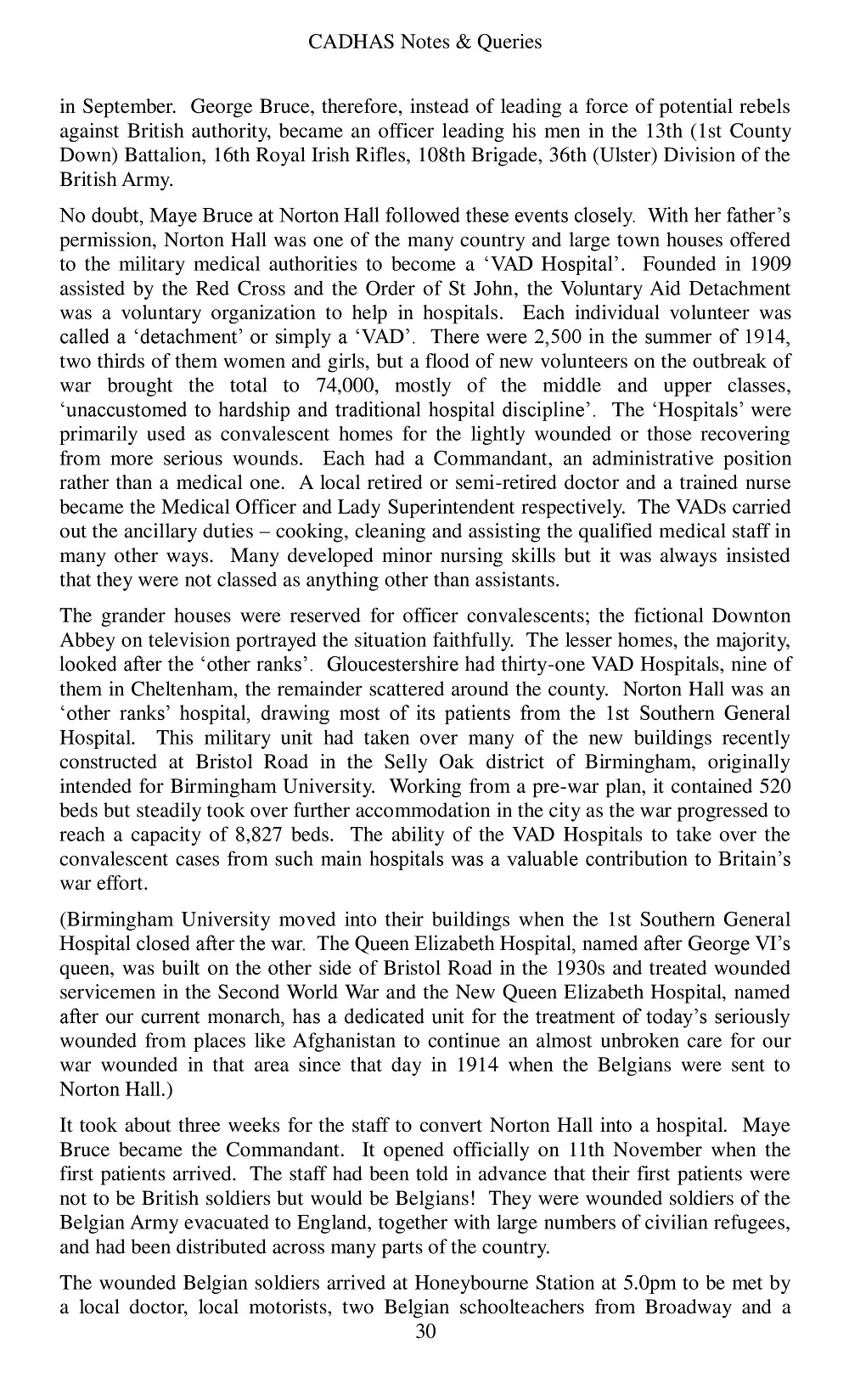
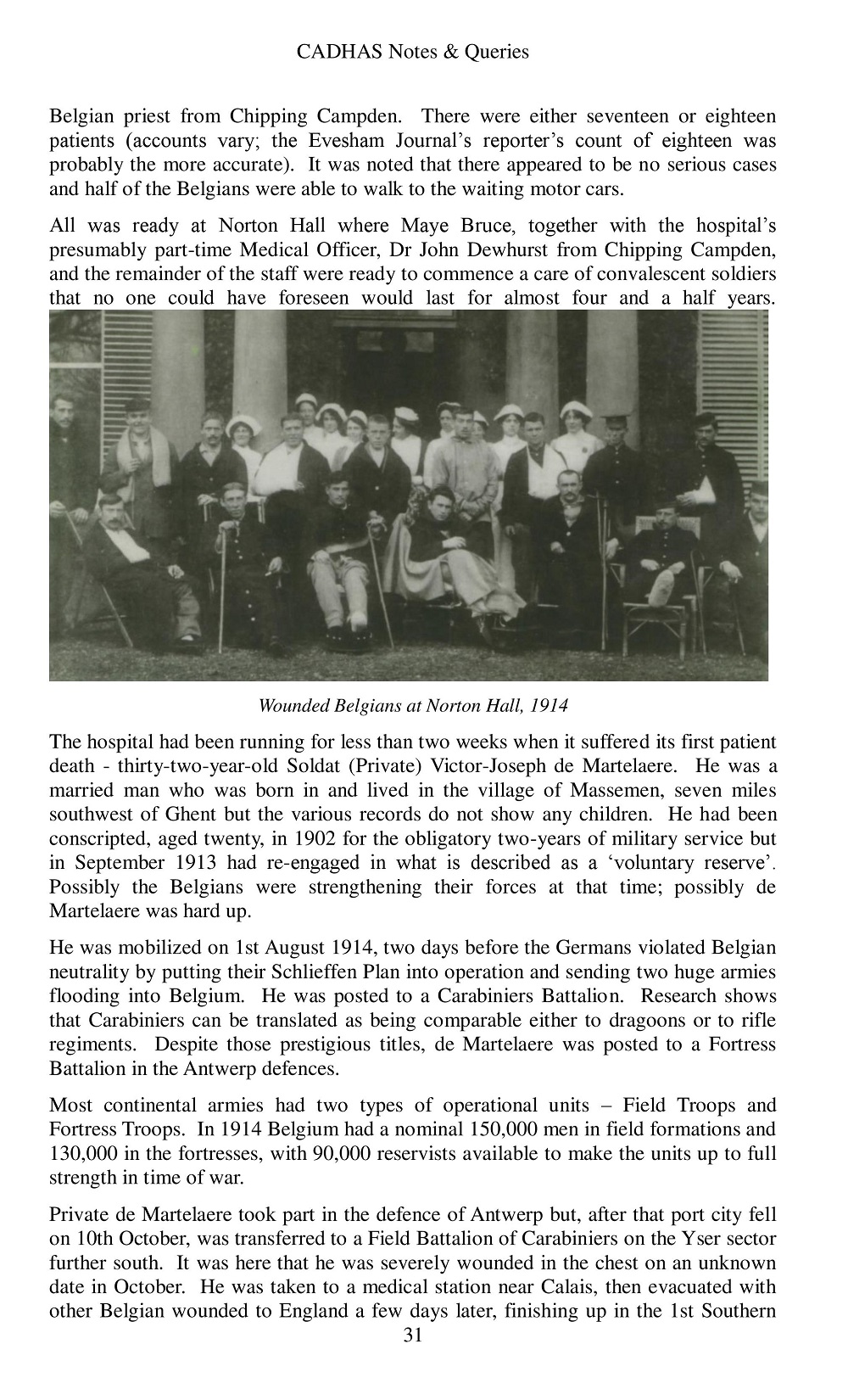
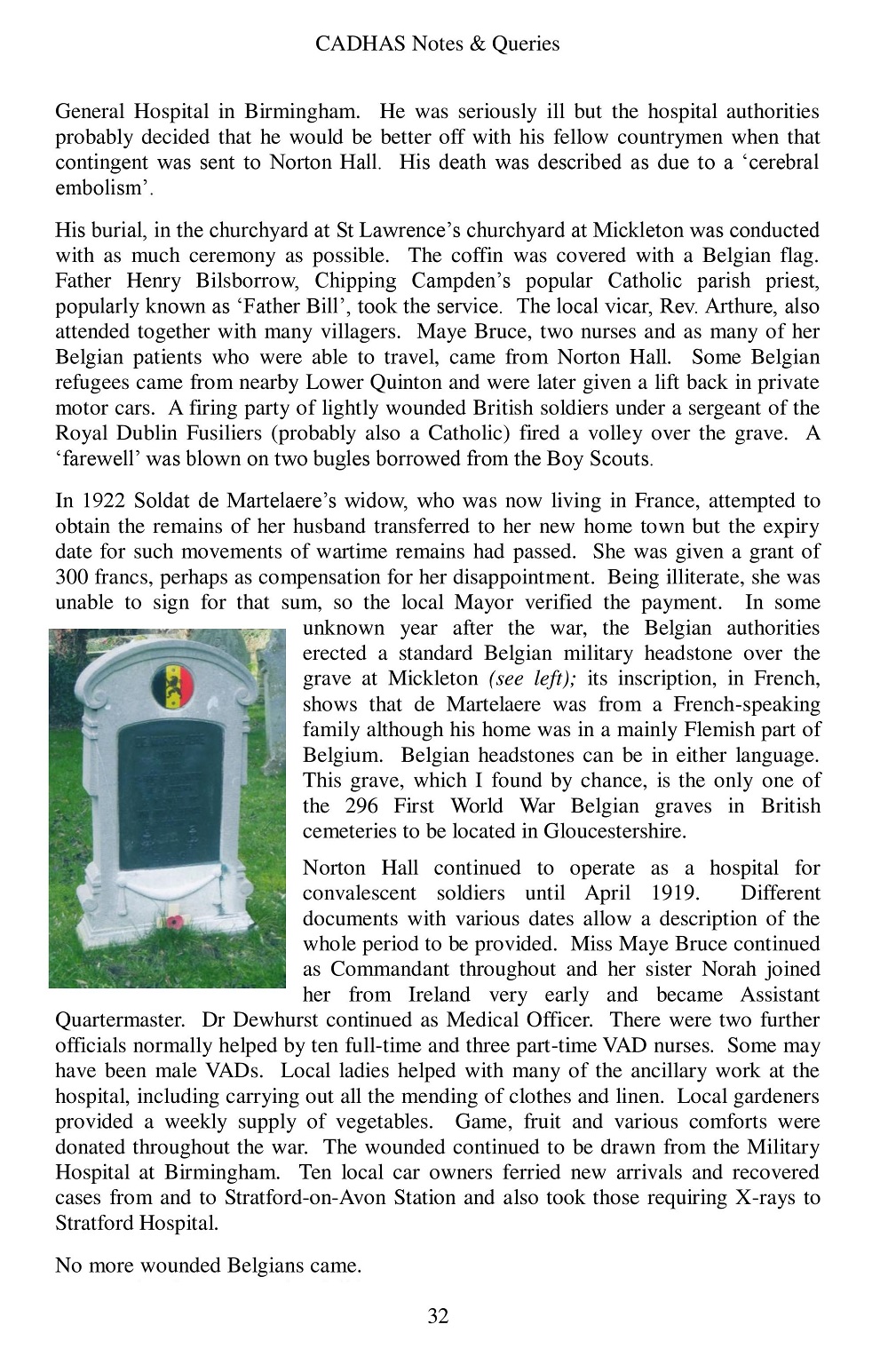
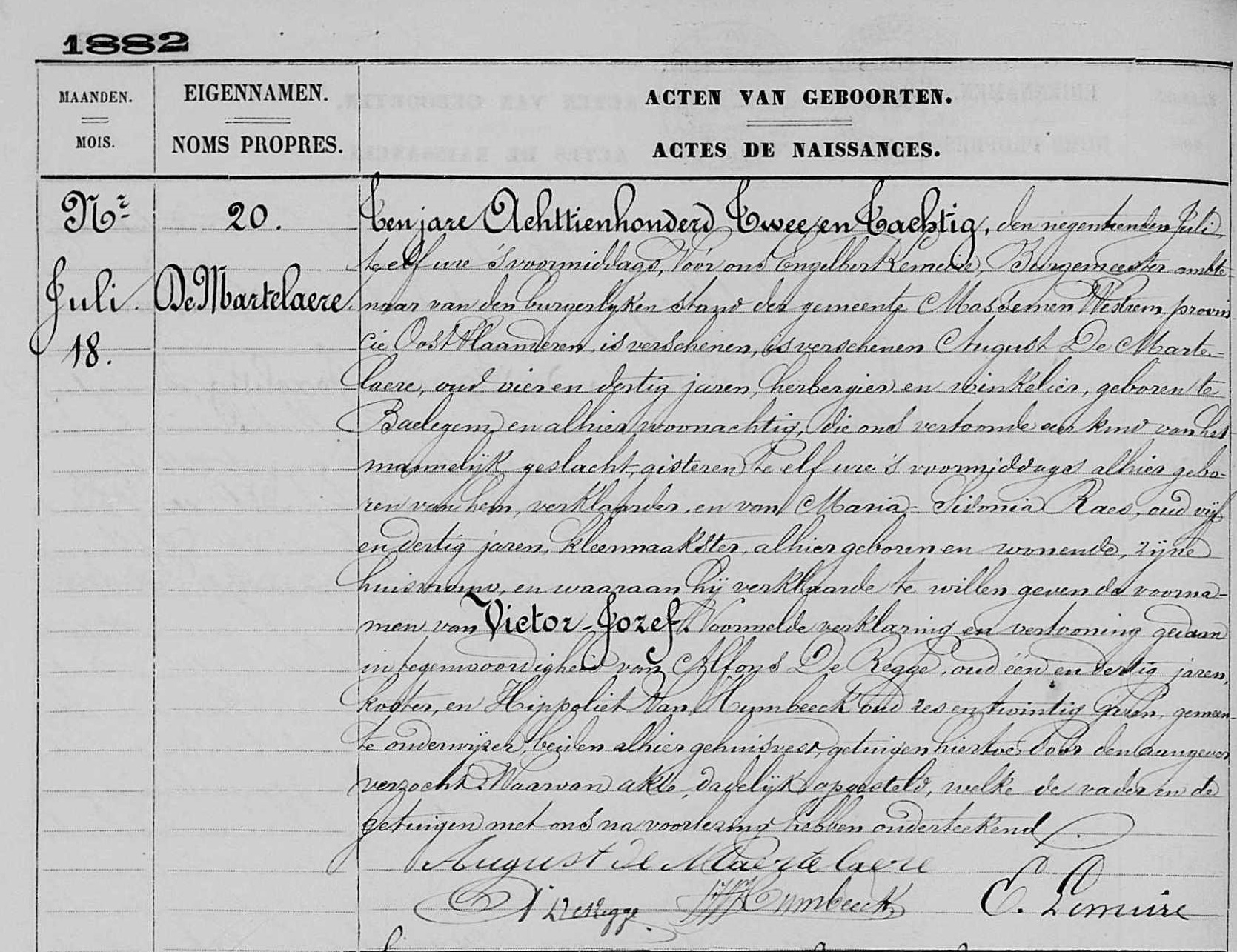
Geboorteakte (Bron [358]) (Het beeld downloaden voor vergroting)
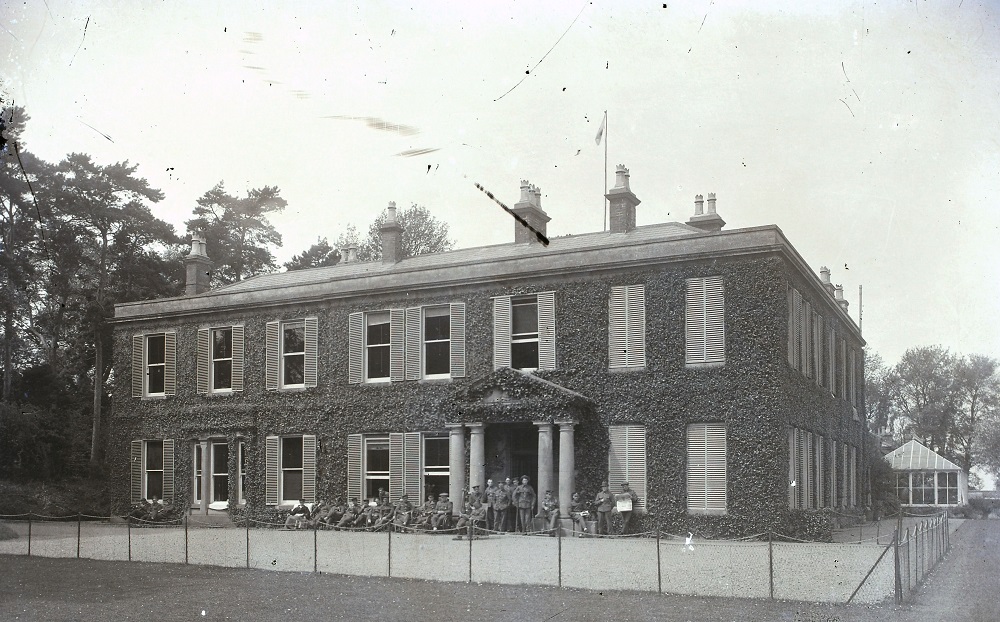
Norton Hall, Red Cross Hospital, pendant la guerre 1914-1918, là où Victor DE
MARTELAERE est décédé
Norton Hall, Red Cross Hospital, tijdens WO I, waar Victor DE
MARTELAERE overleed

Norton Hall, aujourd'hui - huidig